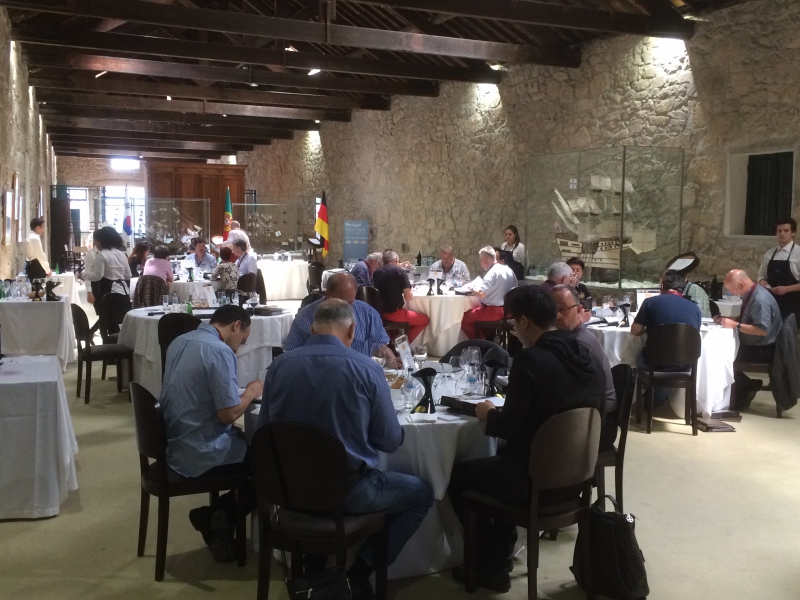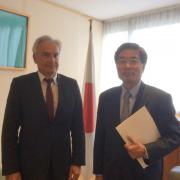
This meeting was a continuation of the visit Jean-Marie Aurand made to Japan last September.
On this occasion, the Director General of the OIV presented the Organisation and its missions to the Ambassador. He also expressed his desire for a closer relationship between the OIV and Japan at an institutional level.
The OIV hosted the first tasting of Japanese wines, organised by the "Koshu of Japan", in 2012.
Jean-Marie Aurand recalled the OIV's availability for a repeat of this type of event.
Japan has a long-standing viticultural tradition. Its production is based particularly on varieties such as Koshu or Muscat Bailey (which produce wines that express the terroirs' characteristics with elegance and refinement) and on the establishment of geographical indications.
In addition, wine consumption in Japan has seen steady and sustained growth. It reached nearly 3.5 mhl in 2014.

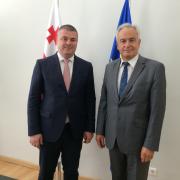
Several Georgian wines produced using the traditional method of winemaking in Qvevris (large clay jars) received an award.
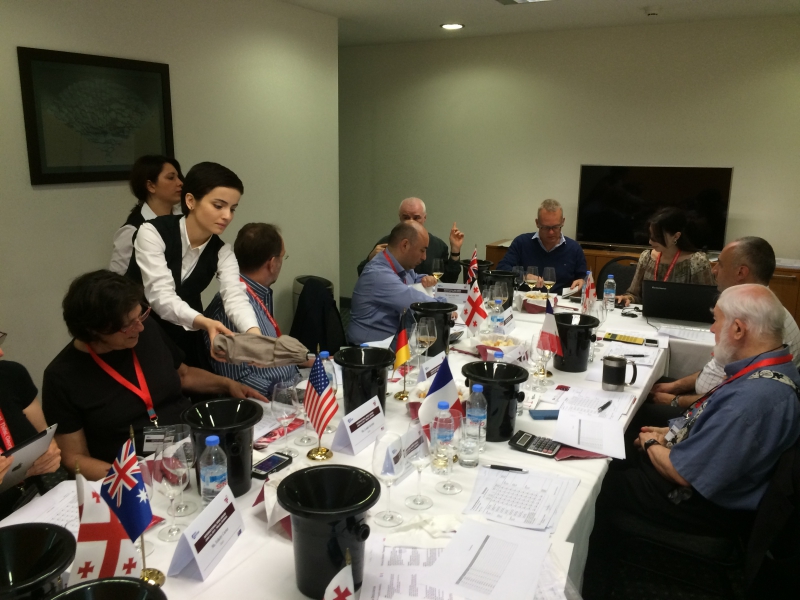
Jean-Marie Aurand met with the Minister for Agriculture, Mr Otar Danelia. The Minister highlighted the importance that his country attached to his presence at the OIV and indicated that he wished to develop collaboration with the Organisation even further.
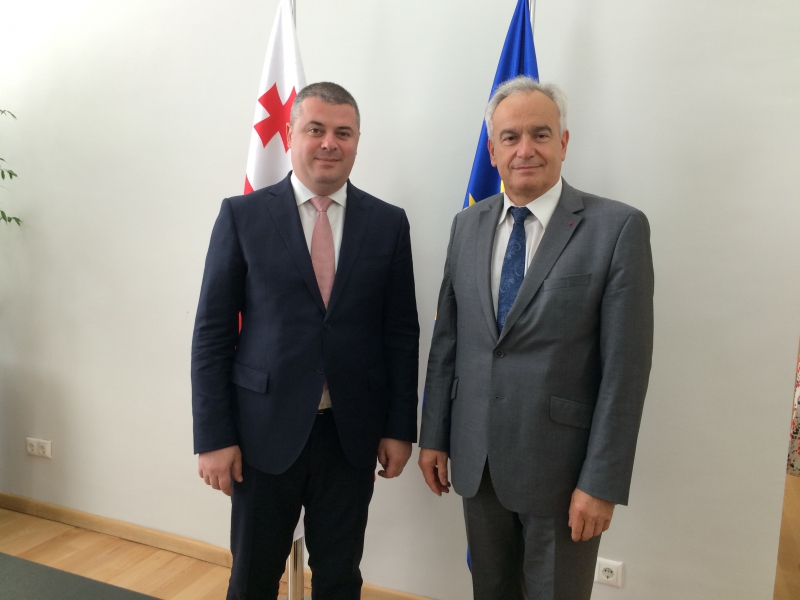
The Director General also visited the National Wine Agency as well as the Scientific Research Center in Jigaura, which has a collection of over 525 native vine varieties grown in Georgia. In addition, he went to Tbilisi University, which has a significant vitiviniculture department, and paid a visit to several vitivinicultural companies near to the capital and in Kakheti.
Georgia produces over a million hectolitres of wine per year and exports about 40% of its production.
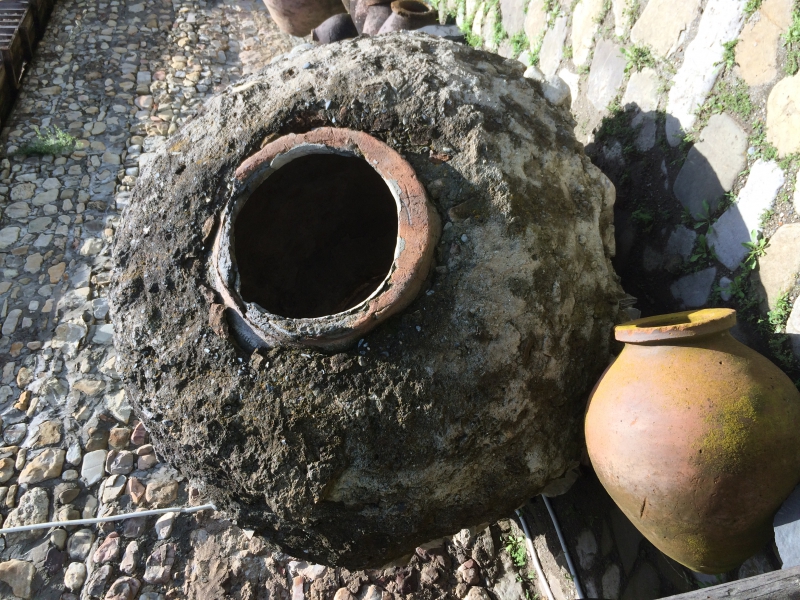
Inseparable from the country's history and culture, Georgian viticulture is demonstrating its ambitions for both tradition and modernity.
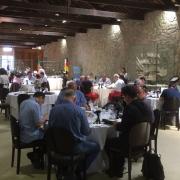
This competition, organised by the Deutsche Wein Marketing allowed to taste and evaluate the surprising number of more than 1200 different samples from all around the world.
The Portugal Wine Trophy plays also a prominent role in the international ranking of wine competitions.
To ensure the respect of the OIV standards for international wine competitions, this competition had the presence of OIV’s expert commissioner Jean-Claude Ruf: Scientific Coordinator and Head of Unit of Health and Security of the Organisation.
